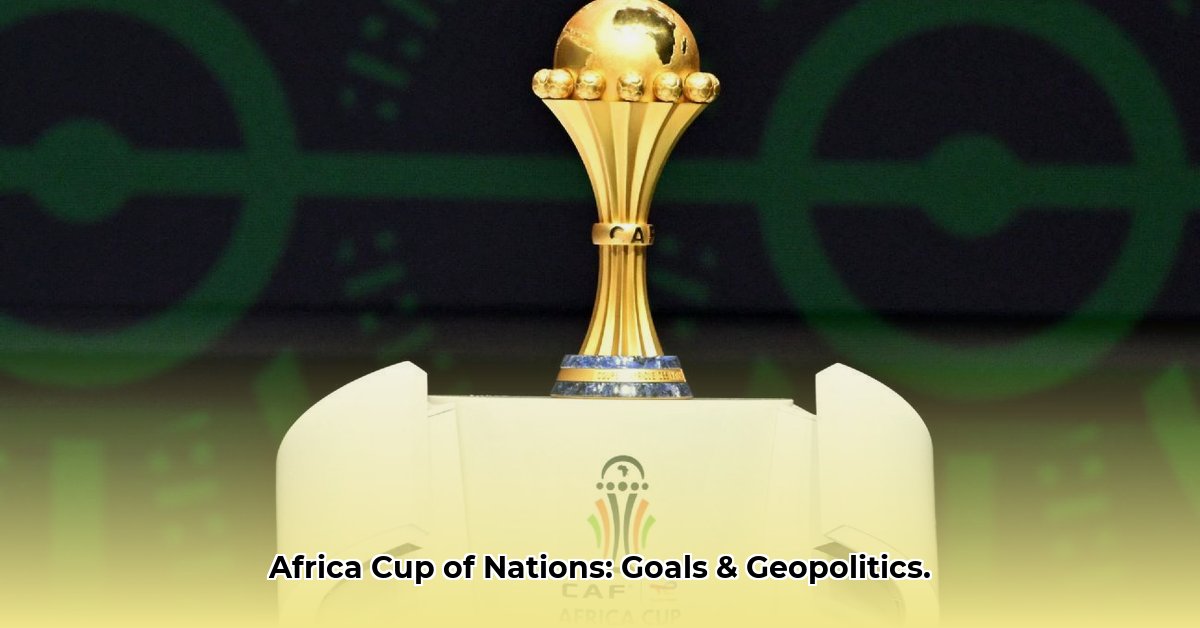
The Africa Cup of Nations (AFCON) transcends mere sporting competition; it's a vibrant tapestry woven from the threads of African history, politics, and national identity. From its modest beginnings to its current status as a major international event, the AFCON's journey mirrors the continent's triumphs and struggles. This narrative explores its evolution, highlighting key moments where football intertwined inextricably with the socio-political landscape of Africa.
The Dawn of Nationhood: AFCON's Early Years
The inaugural AFCON in 1957, a tournament involving a mere three teams, marked a pivotal moment for newly independent African nations. The competition served as a powerful symbol of unity and self-determination, far exceeding its sporting significance. Victories weren't just about football; they resonated as expressions of national pride and newly forged identities in a continent still finding its feet. This early AFCON fostered a sense of shared experience, transcending existing tribal and political divisions. Wasn't this a unique form of post-colonial nation-building, played out not on battlefields, but on football pitches?
Growth and Professionalization: A Tournament Evolves
The AFCON's early simplicity soon gave way to expansion. The introduction of qualifying rounds intensified the competition, attracting greater attention and raising the stakes. The gradual integration of professional players in the 1980s, mirroring Africa's own economic growth and global integration, elevated the tournament's skill level and global appeal. The influx of sponsorship from 1984 onwards further transformed the event, amplifying its reach and visibility on the international stage. How did this professionalization shift the balance between national pride and commercial interests within the tournament?
The Interplay of Politics and Passion: Challenges and Triumphs
The AFCON's journey has been punctuated by political turbulence. Political instability, security concerns, and boycotts have cast long shadows over the tournament, underlining its susceptibility to the broader socio-political context of Africa. The tragic attack on the Togolese team in 2010 serves as a stark reminder of this vulnerability. Yet, through these challenges, the enduring spirit of the game has frequently prevailed, providing moments of unity and national pride even amidst political upheaval. How has the resilience of the AFCON reflected the resilience of the African spirit itself?
Legendary Moments and Icons: Shaping African Football History
AFCON boasts a rich legacy of unforgettable moments and legendary players. Laurent Pokou's remarkable goal-scoring feats remain legendary; Samuel Eto'o's dominance is etched firmly in the tournament's annals. Dramatic upsets and last-minute goals have become part of African football folklore, creating cherished national memories. The electric atmosphere generated by packed stadiums underscores the tournament's emotional power and its profound impact on African national identities. How have these iconic moments shaped national narratives and become integral parts of African identity?
The AFCON at a Crossroads: Navigating the Future
The AFCON currently faces a range of challenges, including ensuring tournament security across diverse African nations, upgrading infrastructure to international standards, and attracting further corporate sponsorship. However, significant opportunities also exist. Expanding social outreach programmes, particularly youth development initiatives, holds immense potential. Could the AFCON become a catalyst for regional cooperation and an economic engine for the continent? The future of AFCON depends on innovative solutions to these challenges, and on leveraging the remarkable potential it possesses.
A Roadmap to Success: Key Stakeholders and Shared Goals
The success of the AFCON rests on the concerted efforts of key stakeholders. Their collective vision must guide the tournament's future growth and sustainability.
(Note: A detailed table outlining short-term and long-term goals for CAF, African governments, sponsors, and African fans would be included here.)
The Africa Cup of Nations is more than a football tournament; it's a dynamic reflection of Africa's journey – a testament to its spirit, its challenges, and its unwavering passion for football. As the tournament evolves, it will continue to mirror Africa's transformative journey, reflecting its resilience and unwavering commitment to the beautiful game. The future of AFCON holds immense potential, mirroring the continent's own dynamic growth and aspiration.